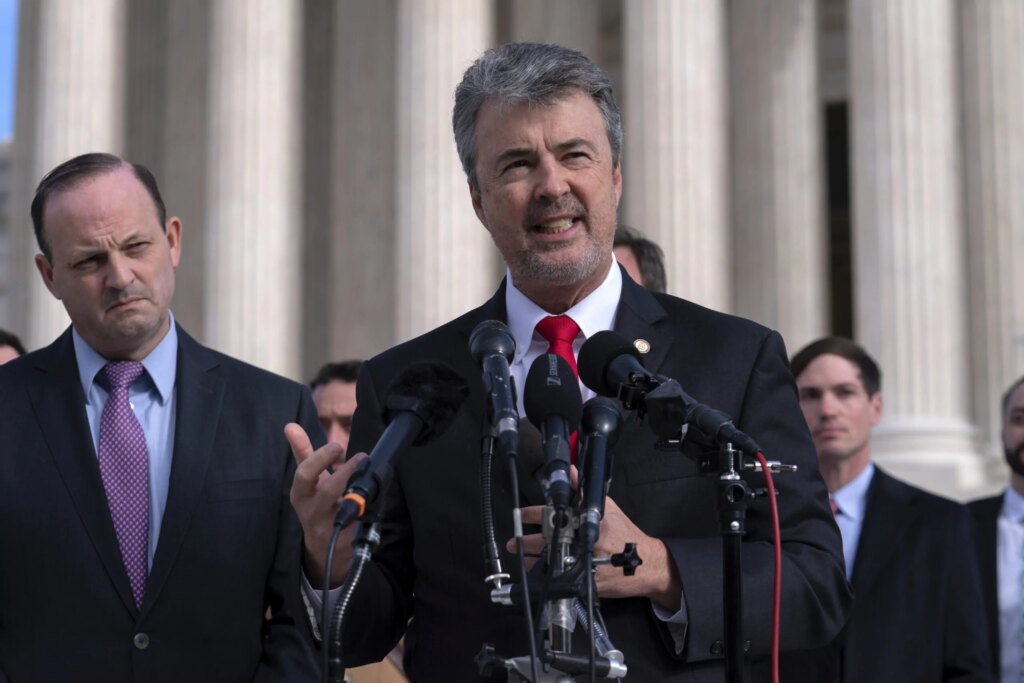Alabama AG Files Briefs on Transgender Athlete Policies
Last week, Alabama Attorney General Steve Marshall submitted two amicus briefs focused on the policies governing transgender athletes in public schools.
In collaboration with Arkansas Attorney General Tim Griffin, the briefs urge the U.S. Supreme Court to uphold laws that mandate public school sports teams to categorize players based on their biological sex at birth.
One of the briefs, endorsed by 26 other attorney generals, addresses the cases Little V. Hecox and West Virginia v. BPJ. In these cases, the plaintiffs are contesting laws in Idaho and West Virginia that aim to segregate sports participation by biological sex.
The 9th Circuit Court had previously determined that Idaho’s law breached the Equal Protection Clause of the 14th Amendment in an August 2023 ruling related to Little V. Hecox.
The Fourth Circuit echoed this sentiment regarding the West Virginia law in April 2024, arguing that it violated Title IX by fostering gender discrimination against the transgender plaintiffs involved.
The Supreme Court has agreed to consider both cases as of July.
Marshall expressed that an essential question lies at the center of these cases: “Can states enforce laws that protect fairness and opportunities for female athletes?” His conviction is that the answer should be yes, emphasizing the ongoing challenges girls and women face in overcoming disadvantages that Title IX was designed to address.
“This isn’t about exclusion; it’s about maintaining the integrity of women’s track and field,” he stated. “We must defend these opportunities because law, science, and public opinion support our stance. We hope the courts will recognize this as well.”
Both briefs argue that the BPJ plaintiffs do not adequately safeguard female athletes, lacking what they term “enhanced scrutiny” in evaluating whether individual transgender and intersex athletes possess a significant competitive edge.
The briefs contend that this scrutiny is not “elevated,” and schools should establish policies that ensure fairness and safety in girls’ sports. It’s noted that the Constitution doesn’t impose insurmountable challenges, allowing schools to create sports teams specifically for biological girls.
Marshall’s office highlighted Alabama’s 2023 law which mandates that public K-12 and higher education sports be divided according to players’ biological sex. Additionally, it pointed out Marshall’s opposition to the Biden administration’s rules that broadened Title IX protections against gender identity discrimination.
A similar brief was submitted recently, advocating for laws that restrict sports participation based on biological sex. This included support from organizations like the American Enterprise Institute and the American Civil Rights Project, along with backing from various state senators.
Prior to the circuit court’s decisions, each case filed briefs that urged the judges to rule against the state laws from Idaho and West Virginia. Supporting plaintiffs in the West Virginia case were several organizations including the National Center for Women’s Law, which highlighted the benefits of sports participation for women and girls, notably for those who are transgender or intersex.
They stressed that excluding these individuals from sports poses risks such as isolation and discrimination, which are crucial issues that should not be overlooked.
Opposition to the Idaho law was voiced by GLBTQ legal advocates, emphasizing that it discriminates against a vulnerable group of women and perpetuates harmful stereotypes rather than promoting sexual equality.
Marshall and Griffin’s brief also received signatures from a number of Republican state attorney generals representing various states.
Only a summary concerning state lawsuits has been signed by the Attorney Generals of Idaho and West Virginia.







